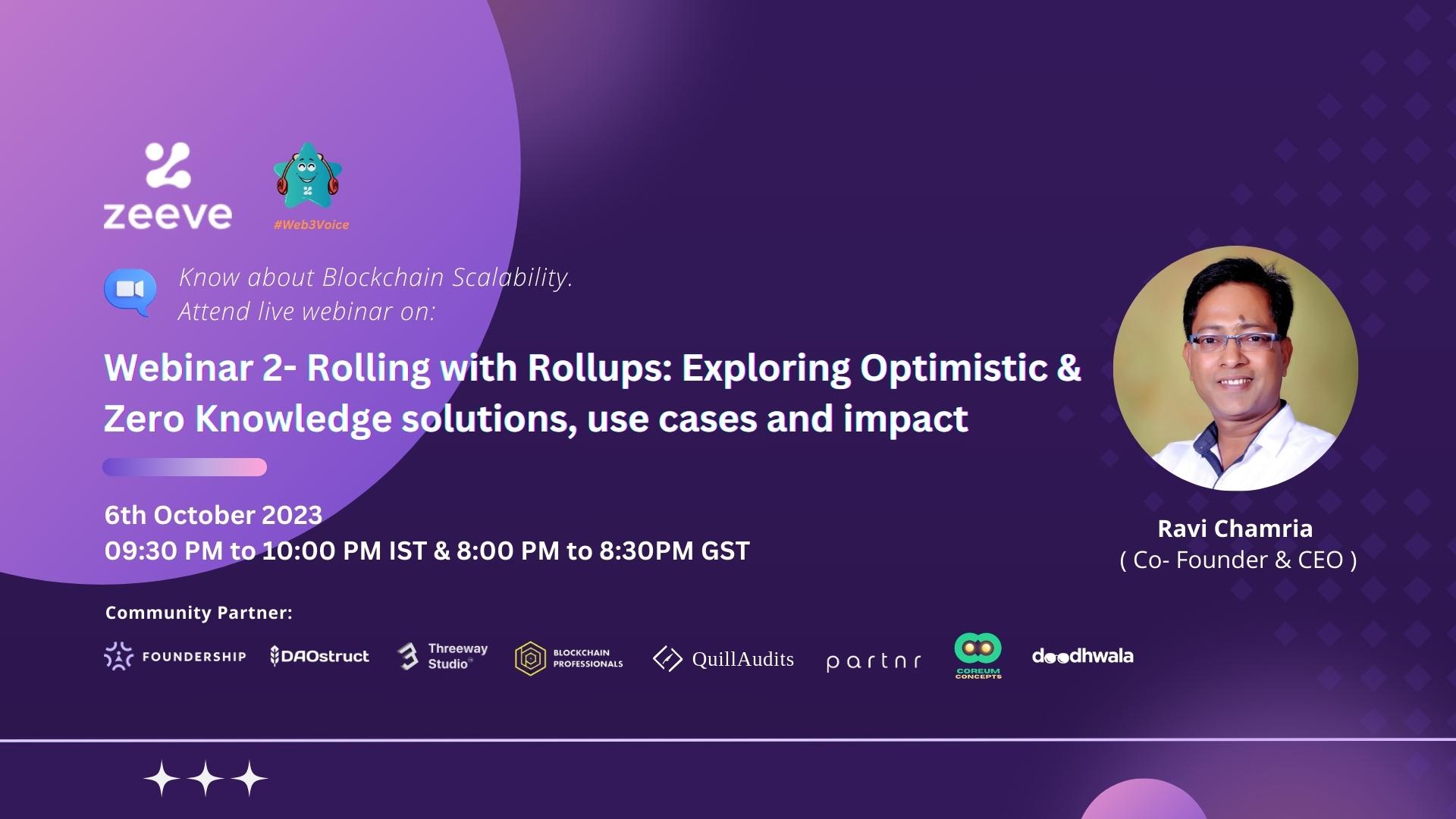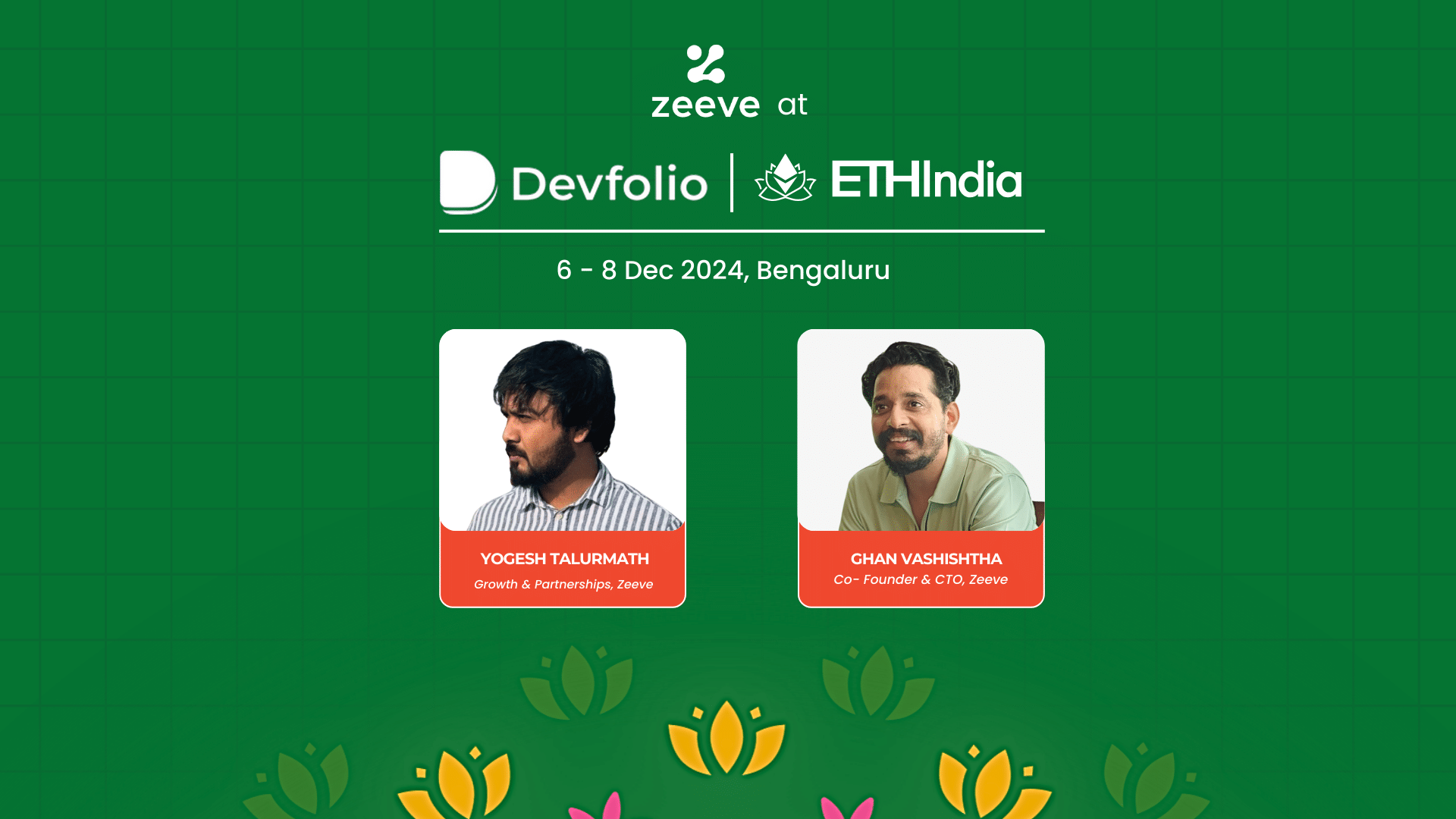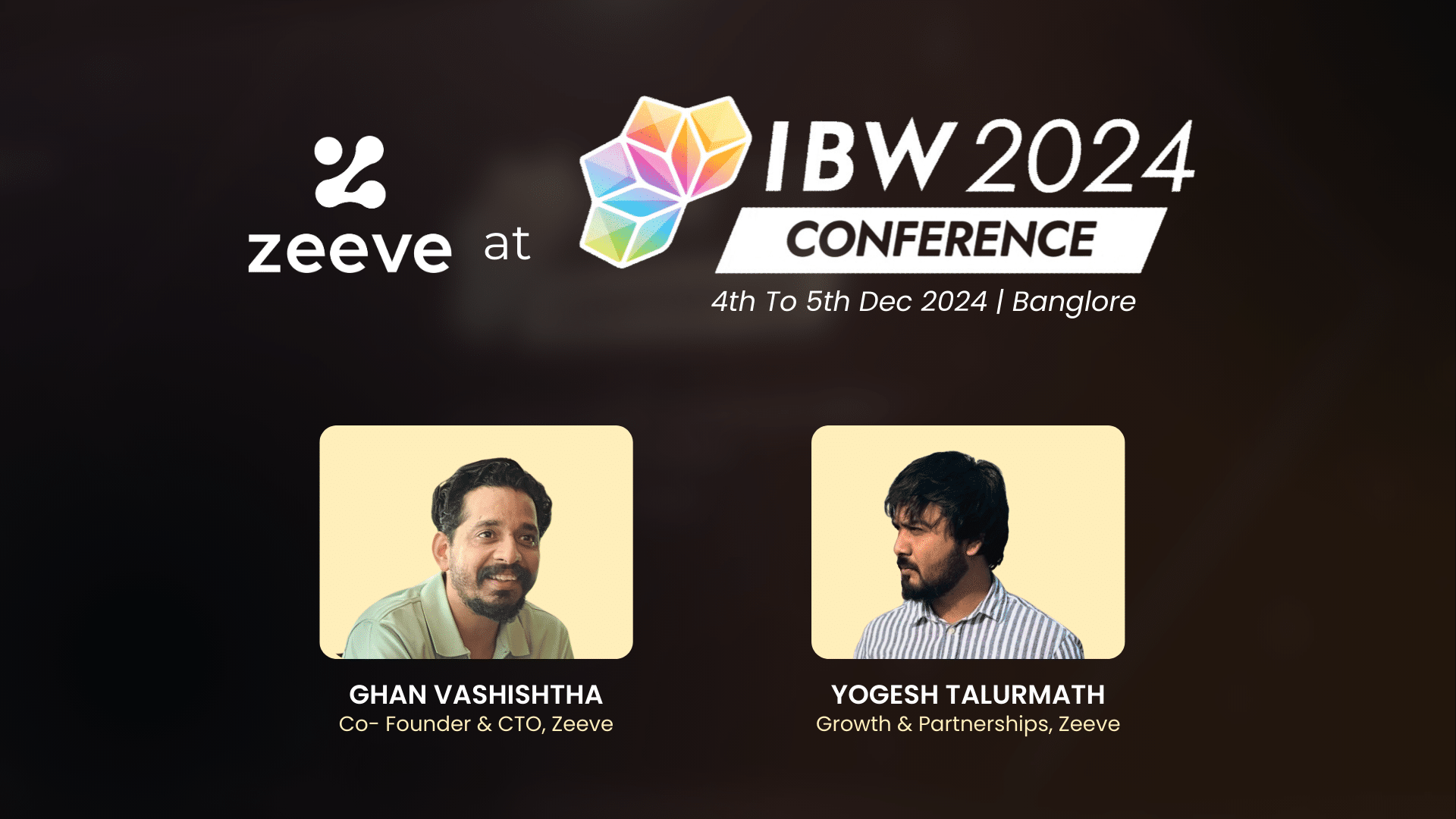Zeeve organized a webinar titled: “Rolling with Rollups: Exploring Optimistic & Zero Knowledge Solutions, Use Cases, and Impact.”
Dr. Ravi Chamria, CEO and Co-Founder of Zeeve, starts the webinar by briefly introducing the topic by discussing different scalability options in the blockchain, focusing specifically on roll-ups. He explains that scalability, security, and decentralization are the three main aspects of a decentralized network, and increasing scalability can negatively impact the other two.
Dr. Ravi discusses layer tools or roll-ups in the context of Ethereum’s scalability. He explains that as the number of users on the Ethereum network increases, there is congestion and a higher gas fee.
Layer tools, such as roll-ups, aim to alleviate this by batching transactions off-chain and submitting a final proof to the main chain. This reduces computation workload, transaction size, and gas fees, increasing efficiency and throughput.
Dr. Ravi also explains the five steps of an optimistic roll-up. Users submit transactions, which go through option validation and block aggregation on Layer 2. The bundled transactions are then submitted to the Ethereum mainnet, where a single transaction updates the contract state. There’s a period where disputes can be raised, and fraud proofs can be challenged. If there’s no challenge, the transactions become final.
He even describes ZK Roll-Ups, also known as zero-knowledge proof Roll-Ups. Zero-knowledge proofs allow one party to prove the truth of a statement without revealing any underlying information. ZK Roll-Ups bundle transactions off-chain and validate them on the rollup chain itself, offering faster transaction finality compared to optimistic rollups.
Dr. Ravi discusses the limitations of ZK Roll-Ups, explaining that they have limited EVM compatibility functionality. It means that existing smart contracts cannot be effortlessly migrated to ZK Roll-Ups because the way calculations are performed is different.
He also compares ZK Roll-Ups with Optimistic Rollups, highlighting that Optimistic Rollups have economic crypto incentives, and transactions are batched on layer one. At the same time, ZK Roll-Ups uses mathematical validation with zero-knowledge proofs.
Furthermore, Dr.Ravi discusses the potential game-changing impact of ZK Rollups becoming compatible with the Ethereum Virtual Machine (EVM). He also explains that Polygon’s ZK VM is an example of a Type 3 ZK AVM that is EVM compatible, allowing for seamless integration with Ethereum.
He highlights the unique proof-of-efficiency consensus mechanism used by Polygon’s EK VM and its significant data availability through validium.
Dr.Ravi concludes the session by explaining various popular roll-ups supported by their platform, such as optimism, orbit, and polygon. They highlight their partnership with polygon labs to provide full support for polygon ZK AVM supernets, which can be deployed and set up in just a few minutes using their automated system.
Lastly, expressing his gratitude to the audience, he encourages viewers to connect with Zeeve on various social media platforms to learn more about their services.
Check out our previous videos on the Zeeve interface, deployments, podcasts, presentations, explanations, and more.
To build on Zeeve – https://app.zeeve.io/
Follow Zeeve on Twitter – https://twitter.com/0xZeeve
Follow Zeeve on LinkedIn – https://www.linkedin.com/company/0xzeeve
Follow Zeeve on Medium – https://medium.com/zeeve





